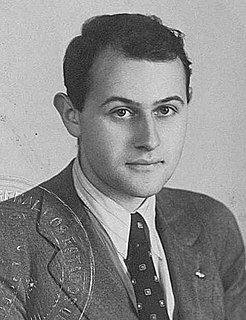A Quote by Ajay Piramal
Our philosophy always teaches us that you can have intense activity, but inside, you have to have peace. The office has to reflect that.
Related Quotes
When one begins to reflect on philosophy—then philosophy seems to us to be everything, like God, and love. It is a mystical, highly potent, penetrating idea—which ceaselessly drives us inward in all directions. The decision to do philosophy—to seek philosophy is the act of self-liberation—the thrust toward ourselves.
The task of a philosophy of photography is to reflect upon [the] possibility of freedom - and thus its significance - in a world dominated by apparatuses; to reflect upon the way in which, despite everything, it is possible for human beings to give significance to their lives in the face of the chance necessity of death. Such a philosophy is necessary because it is the only form of revolution left open to us.
Even as we do all that's necessary to ensure Israel's security, even as we are clear-eyed about the difficult challenges before us, and even as we pledge to stand by Israel through whatever tough days lie ahead, I hope we do not give up on that vision of peace. For if history teaches us anything, if the story of Israel teaches us anything, it is that with courage and resolve, progress is possible. Peace is possible.
I think that everything in the world around us is a reflection of what is going on inside of us. So each of us as an individual creates a life - we draw to us certain people and events and circumstances that reflect what's going on inside of us, so we can literally look at our life and see a mirror of our own consciousness. And if that's true on an individual level, it's also true that what's going on in the world in a bigger way is a reflection of the collective consciousness.
Sensory experience does not offset the intense pain or pleasure we feel on a mental level; it may distract us, but doesn't overcome it. On the other hand, if we have peace of mind, even negative experiences do not upset us. Peace of mind is also good for our physical health. Medical experts have found that anger, hatred and fear eat into our immune system. Being calm and relaxed is better for our physical well-being.
Philosophy is a necessary activity because we, all of us, take a great number of things for granted, and many of these assumptions are of a philosophical character; we act on them in private life, in politics, in our work, and in every other sphere of our lives -- but while some of these assumptions are no doubt true, it is likely, that more are false and some are harmful. So the critical examination of our presuppositions -- which is a philosophical activity -- is morally as well as intellectually important.
If we are at war with our parents, our family, our society, or our church, there is probably a war going on inside us also, so the most basic work for peace is to return to ourselves and create harmony among the elements within us - our feelings, our perceptions, and our mental states. That is why the practice of meditation, looking deeply, is so important.
Intrinsic security doesn't come from what other people think of us or how they treat us. It doesn't come from our circumstance or out position. It comes from within. It comes from accurate paradigms and correct principles deep in our own mind and heart. It comes from inside-out congruence, from living a life of integrity in which our daily habits reflect our deepest values.


































